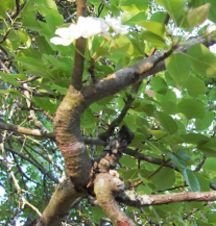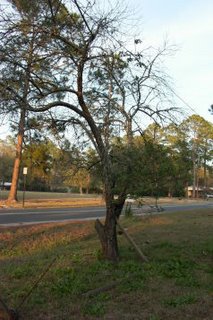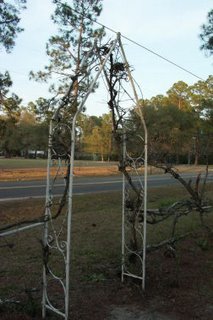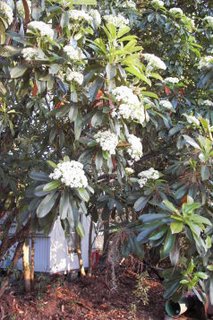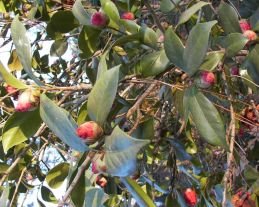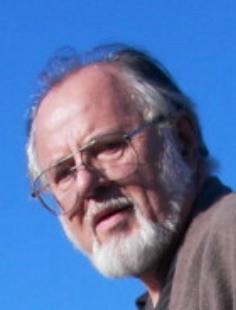The Hard Way to Quit Smoking, Both Times
When I was in the first, second, and third grades, (1940-43) and actually for two or three years thereafter, my best friend, Donnie, lived across the street from me in Alameda, Idaho, a “suburb” of Pocatello ( On one side of the street you were in Pocatello, on the other side, Alameda), Idaho. (Alameda doesn’t exist any more, it was absorbed by Pocatello in what was for Pocatello a really swift move, and for Alameda one of the stupidest moves in history, perhaps more about that later.)
The bombing of Pearl Harbor happened just before Christmas during my tenure in the second grade. Don and I were imaginative, and managed to find a lot of ways to get into trouble. (Not serious trouble, just stupid kid trouble.). To appreciate Alameda at that time you must understand that , though almost a part of a fairly industrial little city of about twenty five thousand, it was essentially a little country village. There was an irrigation canal that bisected the town from west to east, (although the main head gates for the canal was really at the northern border of the community so there was a southerly flow for a few blocks). Underneath every north/south street on the east side of town was a culvert. As far as we were concerned the canals were there for swimming and wading and catching frogs, and (for those culverts that didn’t have two by four cowcatcher attachments at either end) the culverts were for holding your breath and seeing how fast you could swim through under water. There were irrigation ditches down at least one side, and usually both sides of every street, and down the center of some blocks (where one might expect to find an alley). If one had a vegetable garden, it was possible to block one of the ditches and channel the water into your garden. The ditch rider (a man who worked for the irrigation company) would turn the water into each ditch two or three days a week). City water was available for drinking and bathing, but there was no central sewer, so that every home had either a septic tank, a cess pool, or/and outhouse. And yes, there were a substantial number of homes with outhouses, a source of some mischief for older children, and of pain for younger ones. (It was not unusual for some of the younger children to find themselves locked temporarily in outhouses by older - ten or eleven year old- children- especially around the Halloween or April Fool period).
Each street was lined with trees, which were very healthy because the irrigation ditches ran down between the sidewalk and the trees. Most of the trees were enormous poplar trees, many two to four feet in diameter and forming a leafy canopy almost across each entire street. Because the poplars tended to have some large roots that grew under the sidewalks, many of the sidewalks were not level and some were broken. Walking, or riding a bike down the street could be a little precarious. The trees themselves, however, were glorious to children. In the spring, first, little green things appeared on the tips of the limbs. I now presume that they were seeds. A short time later the trees leafed out with enormous leaves, and as the summer heat began, the streets were shady and cool. I wouldn’t say that it never got hot in Alameda at the time, but, except for large buildings like the movie theatres in Pocatello (next door) and some of the commercial buildings, I was never aware of an air conditioned home. (I doubt that I knew that there were such things.) My total experience with air conditioning was signs above some buildings and motels that crowed “Air Conditioned Building.” The trees were both most irritating and most wonderful in the fall first, when they changed glorious color, then when they dropped a six to eight inch leaf cover over yards and streets alike. They were irritating because that spurred a parental charge to rake the leaves into piles. Most piles were in vacant lots or on the edge of the streets, into which all children under high school age ran and jumped and covered themselves up (and scattered the leaves, requiring a second raking.) They were mostly disposed of (modern environmental attitudes be damned) by striking a match and tossing it into the center of the pile. This, in turn, brought about another child’s thrill, Idaho Russet Potatoes, sometimes coated in mud or wet paper towels and placed in the base of the leaf pile. (Others, with more of a sense of food quality than fun, sometimes buried the spuds a couple of inches under ground before the fire was started, or waited till the fire was mostly ash and coals then scooped a hole in the ashes, putting in the potato and raking up a pile of hot ash over the top.)
Over time, quite a few people had the sidewalk cracking poplars replaced with somewhat less aggressive trees. I remember when my parents had the poplars in front of our house removed and replaced with Siberian elms. At the same time they had a new level sidewalk poured. In front of the lot next to our house, sometime previously, someone had replaced the poplar with a box elder tree. This box elder tree was one of the factors in my quitting smoking.
As a Mormon, smoking was a definite no-no, and kids under twelve were assumed to be “clean”, Mormon or not. But the stores were filled with little white candy cigarettes with red tips that you could hold in the corner of your mouth and pretend you were Humphrey Bogart or William Bendix. Most experimental smoking started with a substance that we called “Indian Tobacco”. It was a weed, with a seed pod that was reddish brown like cured tobacco and grainy like one sixteenth of an inch popped corn. The trick was to strip these things off the stock and roll them in strips of newspaper (sometimes plain strips of newspaper were rolled tightly and smoked without Indian tobacco, a good way to scorch your insides) then light them and puff mightily. I don’t think anyone I knew tried to inhale, who knows, it might have been fatal, but they could be puffed pretty well. No one was going to develop a habit from that stuff.
As I noted above, when I was seven years old, in the second grade, World War II began. In no time flat, cigarettes were rationed, and they became pretty hard to get, even when you had the appropriate ration coupons. Now, I don’t know if Don’s dad just had good connections, or if he saw it coming and stocked up a hoard, or if he was a cigarette black-marketeer. I only know that Don and I discovered a spot in the back of his garage, where he stored tools and things, where he also had a ceiling high row of shelves covered with cartons and cartons of cigarettes. After some discussion we liberated a carton of Lucky Strikes, and stashed it away somewhere. We then proceeded to find places where we could light up a cigarette now and then.
The above mentioned box elder tree became an obvious place. I am not enough of a biologist to know if all box elder trees are like this one, but in the summer the foliage on the outside was extremely thick, and for about a five foot circumference from the trunk there was little or no foliage and that space had, for a long time, been our defacto tree house.
We sat in the tree and read comic books and generally killed a lot of time. A short way up into the “tree house” was a burl into which we carved a hole for comic book storage, candy storage etc. We even had the lid of a tomato juice can tacked over the opening to keep things dry. Of course, when the time came, this also became the cigarette stash. We would go up in the tree, and, between us, we would sometimes smoke a pack a day. (We also had Sen-Sen, a licorice breath purifier, mints, and chewing gum in place to try to clean our breath after smoking). We inhaled, we did what we called French inhaling, which was to suck smoke into the mouth, then force it out with the cheeks and tongue while inhaling through the nose. It made, what we thought was a very cool, grown up effect. We blew smoke rings, we just puffed while reading comic books, and had a good old time.
One day at the close of the summer (I am not sure of our actual age at that time but it was eight or nine years old) we heard a fire siren. (Not unusual, the village fire station was only a block away), and Don commented that maybe we should get down and see where the fire engine was going, but neither of us made a move till the engine came down our street and stopped right at our tree. It seems that some neighbor saw smoke drifting out of the foliage of the tree and called the fire station. The man driving, stopped, looked up in the tree, laughed out loud because he knew our parents, and we were, to make a point, busted. Everything we owned came down out of the tree, our mothers came out of their houses (as did a number of other neighbors) and we were dragged home. I don’t know what happened to Donnie as he got home. We barely had time to agree what lie we were going to tell about the source of the cigarettes before we were dragged into durance vile. I do know that I faced the most serious parental discipline of my short life. The tree was declared off limits forever (which didn’t really hold up) but I decided at the time that no cool French inhaling was worth the wide variety of punishments and restrictions that followed, and I abruptly quit smoking forever. (Can you imagine, almost a year of your mother an father smelling your breath every time you entered the house – in addition to other punishments which will not be discussed, but I’m sure that anyone with an active imagination can figure most of them out).
Why then do I mention in the title “Both Times”? Well, it was my senior year in High School, I had started hanging out with a totally different friend named Don. His father and mother had faded out of the picture and he was, in a sense, being fostered by his uncle who was in our church and our ward.(parish, if you will). My mother heavily encouraged me to hang out with Don and be a good influence. I did, and, to a degree, I was. We really became very close, and we began to double date together, study together, sit together (with a bunch of other guys) at church and generally were buddies. I was, at that time, going through a lot of thought about my faith, and in some ways, was having a hard time, and I am pretty sure that Don was going through a lot of the same stuff.
He had (or at least drove, but I think it was actually his) a ’49 Ford. Now, I hear a lot of cars from my youth being called classics, but the ’49 Ford, at that time (the 1951-52 school year) was an acknowledged “bomb”. It would out drag almost anything that was truly stock. It would go from 0 to 60 in what seemed to be a heartbeat, and it would go 85 miles an hour in second gear. (Manual transmissions were about all we had at the time). I don’t have any idea how fast it would go in third gear but it was faster than anyone sane would want to drive on Idaho roads at the time. (Bing Crosby filmed a movie in Idaho about that time and was quoted as saying “I don’t know how Louis and Clark made it across Idaho, the roads must have been better then”)
One night we double dated, and after taking our dates home, we decided to go for a ride, so we started south on US 91/191 toward McCammon, Incom and Salt Lake City. Sometime, about half an hour into the ride, Don pulled out a pack of cigarettes. I had been hassling him about smoking, trying to get him to quit (He didn’t really smoke very much), but for some obscure reason, when he offered me a cigarette, I took it. I was driving, so he lit my cigarette, and I began to smoke as I had when I was in the tree. I deeply inhaled, blew some smoke rings, French inhaled, you know how guys need to show off sometimes. Suddenly the road began to have curves that were never in the pavement. It seemed to actually be moving from side to side and up and down which caught Don’s attention immediately. I believe his comment was something like “What the HELL?????”
I took my foot off the gas, (I don’t even want to think about how fast I might have been going), and with Don holding the steering wheel to help me, I got the car stopped by the side of the road. Strangely enough the road was still moving from side to side and up and down as I staggered out, leaned over the left fender and threw up. My insides were not satisfied with having emptied themselves, so, with Don supporting me to keep me from falling to oblivion into the sage brush, I moved to the shoulder of the road, where I had the dry heaves until I was so weak he had to drag me over to the car door. As he got me in, went over to the driver’s side and started the car, I remember screaming “STOP”, opening the door and falling to my knees back on the road shoulder with another session of dry heaves.
I don’t know how long I knelt there, but I think I passed out as we were going home. I can honestly say, that from that time to this, I have never had a temptation to smoke. On a couple of occasions I have had the opportunity to kiss young ladies who were shocked as we got close and I smelled tobacco on her breath, to see me back up, almost nauseated.
The interesting thing was that, I think, from that time till we graduated and he moved to live with either his father or mother somewhere (I still really miss him, he was a great friend) I don’t think Don smoked any more either.
